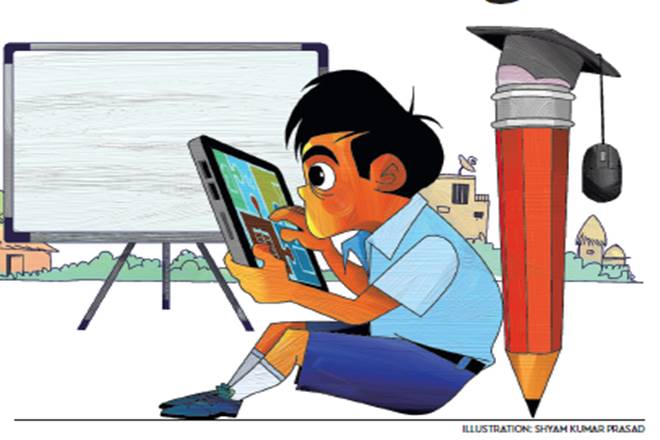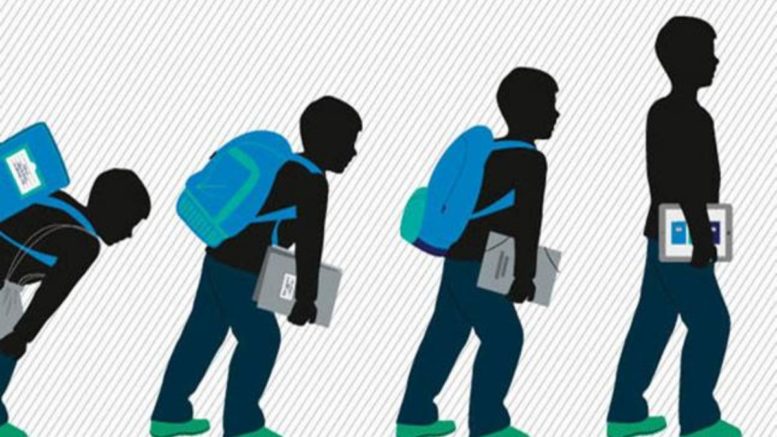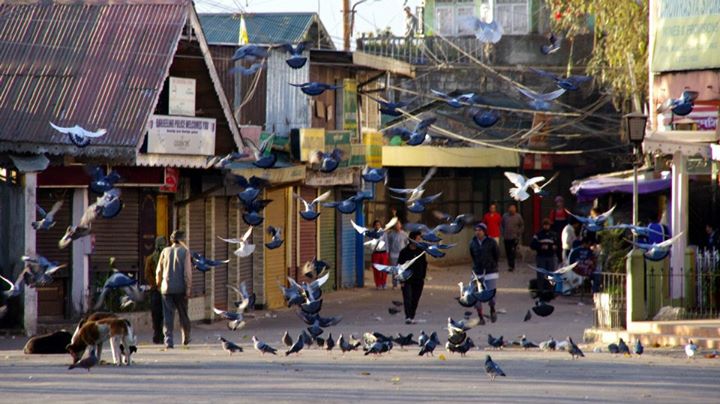The role of education is not only to train the students for a living but for life. For years, education has only been used as a standardizing factor and not as a factor for liberating the self. This COVID19 pandemic has shaken the entire globe and we have been seeing the repercussions of lockdown in every sector including education. All sectors are trying their best to stay afloat and digital platform has acted as an oar to help row in this chaotic storm of events.
In the field of education, many institutions worldwide have been using technologies to make the learning materials available online and have also moved gears to conducting the classes and delivering lectures online. The technological breakthrough in the field of education is transformational and its impact has been felt in the content delivered and the pedagogies used for it. Select few privileged school administrators, teachers and students are facing this new challenge with a zeal for the understanding that hindrance in education means hindrance in the economical success of a student in the future to come.
However, not all are privileged to be walking on the path of digital educational success in these testing times. There is a huge gap that exists between the privileged few who have easy accessibility to various technologies and good quality internet at an affordable cost and those who lack any one of the above. This gap in the access to the internet and technology is often described as the “Digital Divide”. In other words it is the gap that exist between the individuals who have sufficient knowledge and access of technology and those who do not and this disparity will lead to widening social and economical development.
The future jobs in the 21st Century require not only the knowledge and information but skills and competencies to meet the demands of the labour force in the global economy but the digital gap in the learning process will also see a gap in the readiness of securing jobs.
Considering the current scenario, the future of our students in the hills weighs more towards a disadvantage scale. The role played by Information & Communications Technology (ICT) in trying to bridge the digital gap and imparting quality education even at the hours of a pandemic has not been explored at all or not been explored enough in the chains of school in the hills. The level of digital literacy is stuck at using the social media platform alone and has not been channelized to exploring transformational digital teaching and learning. This has put our hill students at an unfair competitive edge over the privileged counterparts in various parts of the world. Chances are that our students from the hills who lack access to crucial information form academia online will lag behind the rest. This situation is not of the hill students alone but also of every economically underprivileged student.

The urgencies in exploring the digital platform for imparting education in the hills school could be due to various reasons and one of the major ones is the economical affordability and internet accessibility. Still, there are regions in the hills where there is no internet connectivity. Even if the school managements decide to explore this realm, the issue of internet connectivity will pose as a major challenge. Then the question of who should be addressing this issue comes to mind. It might shift the focus from one group to another but then without the governing administrators of the hills are willing to bring about a change in how the ICT is handled in the hills then it will become impossible to bridge the digital gap in education. Procuring accessible, high speed and low-cost internet facility as well as allocating funds for purchasing affordable ICT devices such as laptops or computers should be the focal point in the development program of the hills.
Hill students should not be deprived of the opportunity of contributing towards making a significant difference in the local and global community by learning through a digital platform to solve complex problems innovatively. Sikkim and Darjeeling hills have world-renowned educational institutions and a legacy of imparting quality education but then it is time to pause a moment and question is that enough? Where do we stand in this fast-paced digital education race? How prepared are we to face the digitally divided world? It is high time that we face the high tides of the VUCA world and empowers the hill students to fight all the battles of life for in the end education is for life and not merely for a living.
Writes: Vishaka Labar. She is from Darjeeling and currently an International Baccalaureate Diploma Program (IBDP), Environmental Systems and Societies (ESS)& Theory of Knowledge (TOK) Facilitator at Indus International School, Hyderabad.






Leave a comment